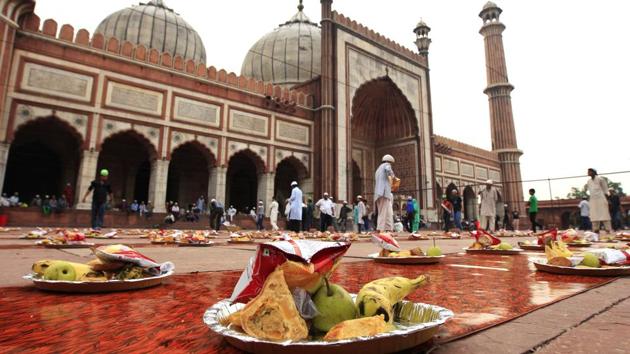Lose weight in a month, simple diet and exercise tips for quick results
Do you want to lose weight in a month during Ramzan? You can if you follow a disciplined diet and exercise regularly. Here’s what experts recommend you should eat for weight loss and stay fit.
While fasting during Ramzan is primarily for a religious purpose, it’s also the perfect time to detox. If you’re wise about what you consume during sehri and iftaar, you can shed the extra kilos. Here’s how:

Plan your sehri to keep you sustained
“Recipes involving oats and wholegrain bread should be included in pre-dawn meal as they help stay full,” says Alka Lohia, nutrionist and dietician, 6 Meal, Delhi. “Consumption of caffeine should be avoided as it can lead to de hydration and longing for water.”
Include proteins and complex carbohydrates to keep your energy levels maintained during the day. “Casein shakes are a great way to stay full and maintain muscle mass, which in turn avoids your metabolism tanking,” says Ryan Cannell, Mr World physique medallist, pro athlete, and General Nutriton Center expert.
Keep the iftaar modest
Once when the fast is over during the evenings, one should begin with drinking fluids, preferably water or naturally sweetened drinks make up for the loss during the day. “Swap high calorie and deep fried food with whole grains, fruits and vegetables and lean meat. All three categories should be consumed, but eating in moderation is the key,” says Lohia.

Avoid the temptation of overeating at iftaar. “The metabolism drops during a period of fasting and it is easy to pile on the calories,” says Cannell.
Dates which are one of the main fruits eaten during Ramazan are the best option to begin with when breaking the fast. “They are easy to digest and help to decrease the feeling of hunger. Dates also fuel your body with much needed energy therefore preventing over eating,” explains Lohia.
Don’t shy away from exercise
Intermittent fasting (IF) has trainers and dieticians around the world changing their long-held beliefs of 6 small meals a day. Intermittent Fasting involves fasting for 16-20 hours and consuming all your daily calories and nutrients within a 4-6 hour window. “This is pretty much what you do when you’re fasting during Ramadan. So, it only makes sense to continue exercising during Ramadan in order to take full advantage of utilising a calorie deficit, which is ideal for those looking to reduce their body fat percentage,” Cannell explains.
If one has a pre-existing medical condition like diabetes and if a pregnant woman wants to fast, then consulting a doctor is a must.
Follow @htlifeandstyle for more
Catch your daily dose of Fashion, Taylor Swift, Health, Festivals, Travel, Relationship, Recipe and all the other Latest Lifestyle News on Hindustan Times Website and APPs.
Catch your daily dose of Fashion, Taylor Swift, Health, Festivals, Travel, Relationship, Recipe and all the other Latest Lifestyle News on Hindustan Times Website and APPs.






